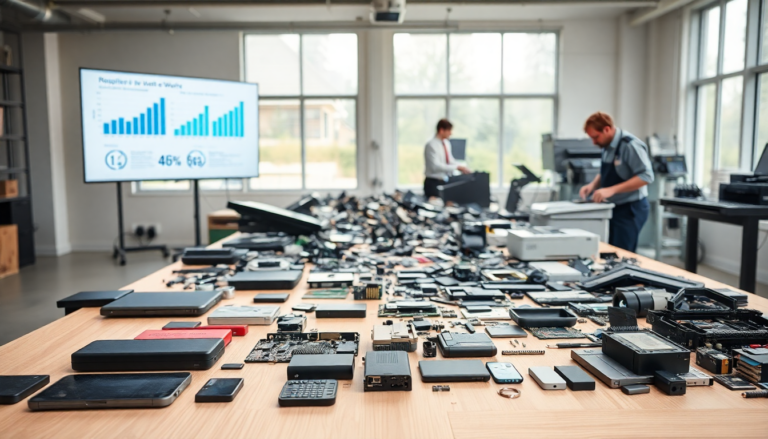Argomenti trattati
In the tech industry, one pressing issue is starting to command more attention: electronic waste, or e-waste. With companies grappling with the consequences of their product lifecycles, the sheer volume of electronics discarded each year is staggering. This growing challenge raises an important question: how can we make technology more sustainable? HP has stepped up to the plate, announcing an innovative service set to launch in 2026. Think of it like a CarFax report for laptops, providing detailed insights into their history and condition. This initiative not only addresses the urgent problem of e-waste but also aims to reshape how consumers think about disposing of their technology.
The E-Waste Challenge in Technology
E-waste is rapidly becoming one of the fastest-growing waste streams worldwide, and it comes with serious environmental consequences. With the surge in consumer electronics, we’re seeing a corresponding rise in discarded devices, many of which end up in landfills rather than being disposed of sustainably. This situation presents a dual challenge: companies need to reduce their environmental footprint, while consumers often lack the information to make smart decisions about their devices. Enter HP’s forthcoming service, which will utilize data gathered from its Endpoint Security Controller to shine a light on the condition of laptops.
By tapping into telemetry data, support requests, and artificial intelligence, HP plans to craft comprehensive reports that provide a detailed account of a laptop’s usage and maintenance history. This approach does more than just inform consumers; it encourages them to think about the longevity of their devices, rather than simply tossing them aside after a few years. In many ways, this initiative is part of a larger trend in the tech sector where companies are beginning to take responsibility for their products’ entire lifecycle. Isn’t it refreshing to see this shift?
How HP’s Service Works
So, how will this service work? HP’s offering will pull together information from diverse sources—think factory records, customer support logs, and even insights from partners like refurbishment and component manufacturers. By merging this data, HP aims to help potential buyers gauge the true value of a used laptop, ultimately reducing unnecessary waste. These reports won’t just reveal if a device is in good shape; they’ll also include predictive analytics about potential failures. Why is this important? Because it allows IT teams to foresee issues before they escalate, minimizing downtime and extending the life of the devices.
What’s more, the integration of AI into analyzing historical data is a real game-changer. By predicting problems like SSD wear or battery wear-out, HP’s service could completely transform how consumers and businesses manage their devices. Instead of viewing older laptops as outdated relics, users might start to see them as valuable assets that can be maintained and upgraded. This change in mindset is crucial for cultivating a culture of sustainability in tech consumption. Isn’t it exciting to think about the possibilities?
The Future of E-Waste Management
As HP gears up to launch this service, it marks what could be a transformative moment in how we approach technology and sustainability. Companies are becoming increasingly conscious of their environmental responsibilities, and initiatives like HP’s could set a new standard in e-waste management. By offering in-depth insights into the lifecycle of devices, HP not only empowers consumers to make informed choices but also encourages manufacturers to adopt similar transparent practices.
The impact of this service goes beyond immediate benefits; it relates to a larger narrative around corporate responsibility in the tech industry. If HP’s approach proves successful, it could inspire other companies to rethink their strategies for handling e-waste, paving the way for a more sustainable future. Looking ahead, the intersection of technology, sustainability, and consumer education will be pivotal in tackling the e-waste crisis. Are we ready to embrace this change?

